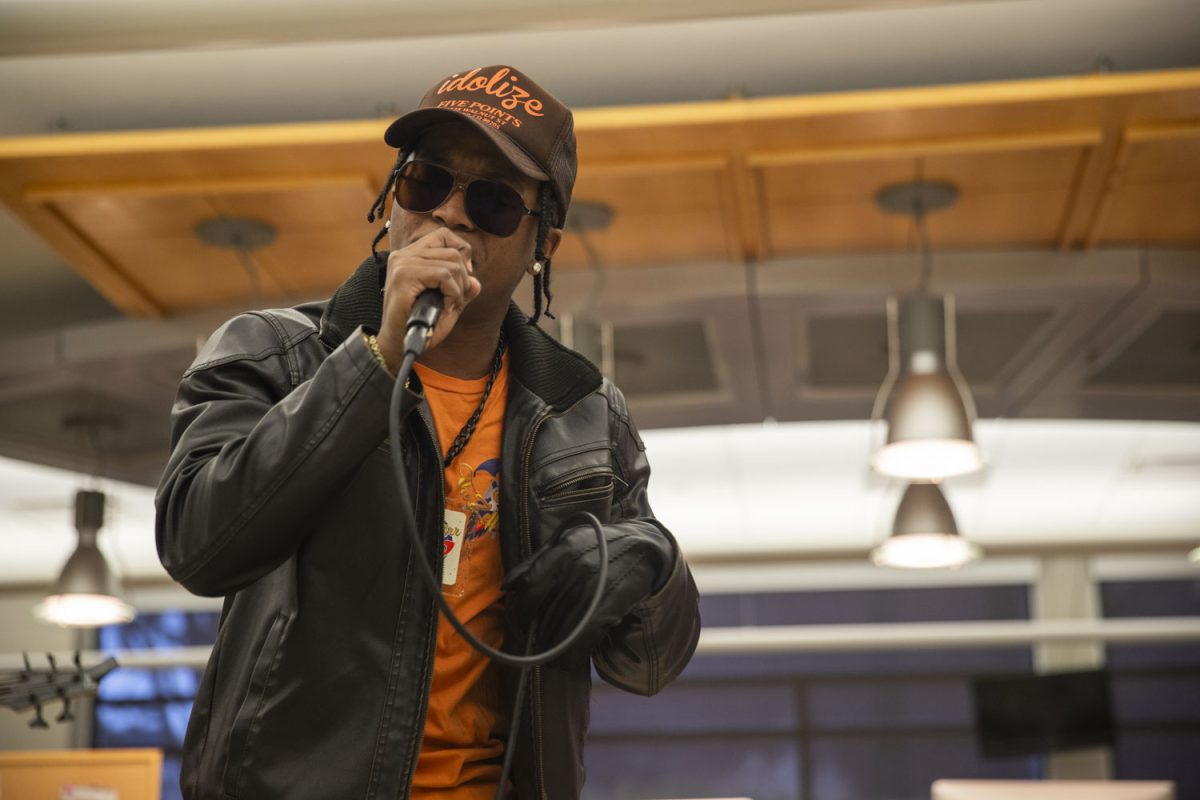Pass through the plastic-sheet doors and enter the slaughterhouse, in which blood stains the floor and raw meat hangs from the ceiling.
Slaughter City will open at 8 p.m. today in the Theater Building’s Thayer Theater and run through April 20 at 2 p.m. Wednesday through Saturday shows will take place at 8 p.m., Sunday shows at 2 p.m.
The play tells the story of the plight of the slaughterhouse workers and how they fight against poor pay and working conditions.
The show is meant to be contemporary but has a retrospective aspect to it — it refers to such events as the Triangle Shirtwaist Co. garment-factory fire on March 25, 1911, in New York City. The sweatshop occupied the top three floors of its building. More than 100 workers — 145 — perished because only one of four elevators worked (accessible only by a long, narrow hallway), and of the two stairways, one of the doors was locked to prevent theft. The workers were overwhelmingly young immigrant women who didn’t speak English, according to several reports.
Slaughter City is one of several contributions to this year’s Series on Arts and Rights. The initiative is a collaboration between the UI Division of Performing Arts and the UI Center for Human Rights and consists of pieces from all areas of the arts on campus.
Director and UI lecturer Meredith Alexander said the show brings up several social issues, such as class, sexism, racism, and various discriminations. She said it is meant to make people question to what extent the problems of the past bleed into today.
"These are the reasons the play appeals to me," she said. "Rarely do you have a chance to work with such powerful, poetic writing that’s also humorous and irreverent."
UI graduate student Morris Hill, who plays the character of Tuck, the supervisor at the slaughterhouse, said among the many human-rights issues the show addresses, his character involves racism in particular. Tuck is an African American, and there is some tension among him and other characters concerning his position of power.
Hill said Tuck especially butts heads with Cod (K. Krohn), a white character who creates tension because he broke the workers’ union line.
"If they can get one person to break it, they can get another person to break it," Hill said. "It leaves us all at risk of losing the fight."
Tuck’s character is "stuck between a rock and a hard place" because he has been at the slaughter house for 15 years and worked alongside the people he now supervises. He struggles to support the union while hiding that support from his superiors.
UI undergraduate Megan Henry, who plays the role of a textile worker, said her character is a symbol of the past. She is onstage to remind the characters of the struggles factory workers have suffered and how they fought for better conditions.
"[The textile worker] is the most present and the least present all at once," Henry said. "I have the fewest words, but I never leave the stage."
Henry said the show, while addressing so many very important social issues, doesn’t offer many concrete solutions to the audience.
"It’s the kind of theater you go to smoking a cigar and then you discuss politics after," she said. "We’re trying to make you think."
THEATER






